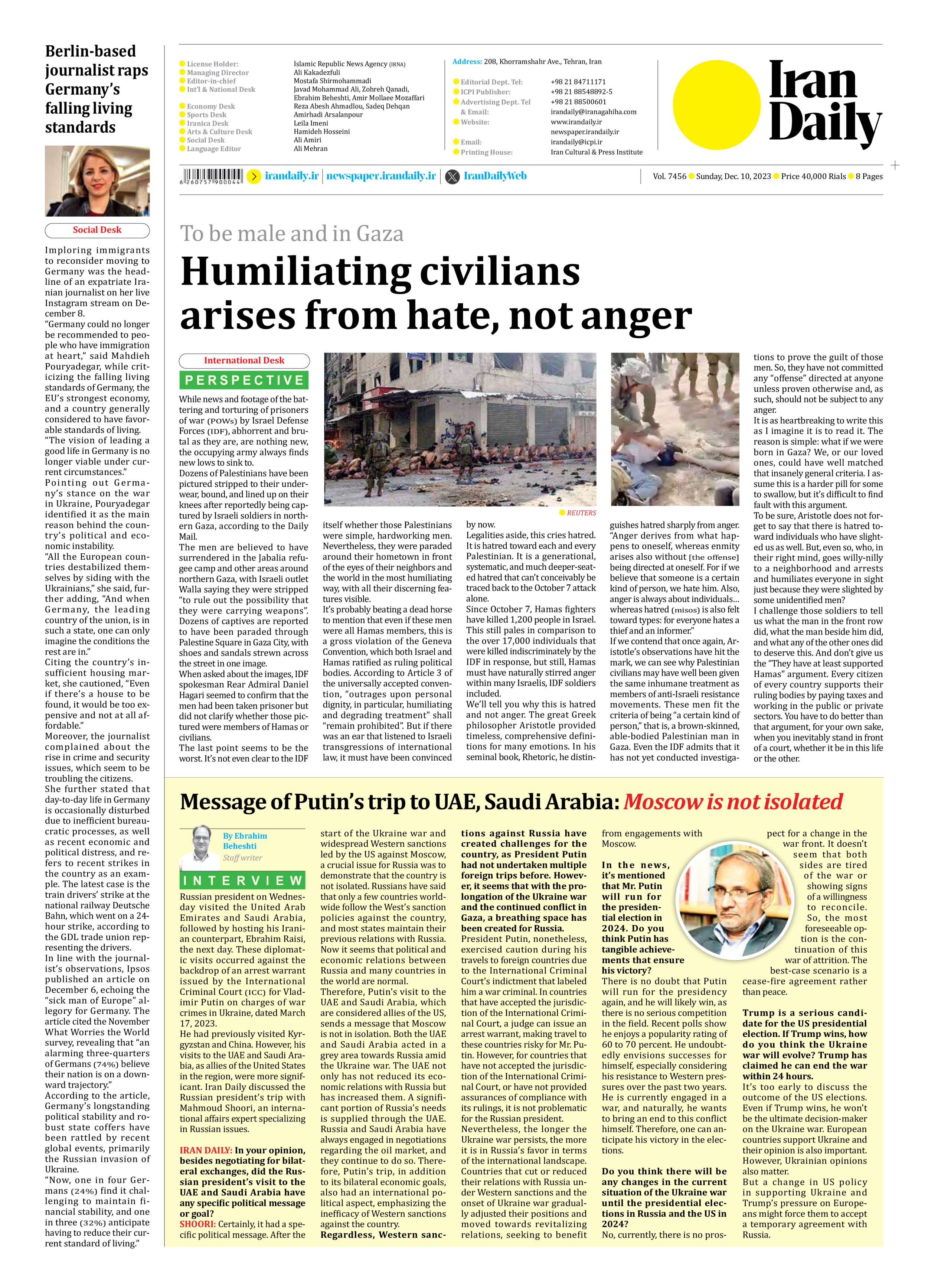
Berlin-based journalist raps Germany’s falling living standards
Imploring immigrants to reconsider moving to Germany was the headline of an expatriate Iranian journalist on her live Instagram stream on December 8.
“Germany could no longer be recommended to people who have immigration at heart,” said Mahdieh Pouryadegar, while criticizing the falling living standards of Germany, the EU’s strongest economy, and a country generally considered to have favorable standards of living.
“The vision of leading a good life in Germany is no longer viable under current circumstances.”
Pointing out Germany’s stance on the war in Ukraine, Pouryadegar identified it as the main reason behind the country’s political and economic instability.
“All the European countries destabilized themselves by siding with the Ukrainians,” she said, further adding, “And when Germany, the leading country of the union, is in such a state, one can only imagine the conditions the rest are in.”
Citing the country’s insufficient housing market, she cautioned, “Even if there’s a house to be found, it would be too expensive and not at all affordable.”
Moreover, the journalist complained about the rise in crime and security issues, which seem to be troubling the citizens.
She further stated that day-to-day life in Germany is occasionally disturbed due to inefficient bureaucratic processes, as well as recent economic and political distress, and refers to recent strikes in the country as an example. The latest case is the train drivers’ strike at the national railway Deutsche Bahn, which went on a 24-hour strike, according to the GDL trade union representing the drivers.
In line with the journalist’s observations, Ipsos published an article on December 6, echoing the “sick man of Europe” allegory for Germany. The article cited the November What Worries the World survey, revealing that “an alarming three-quarters of Germans (74%) believe their nation is on a downward trajectory.”
According to the article, Germany’s longstanding political stability and robust state coffers have been rattled by recent global events, primarily the Russian invasion of Ukraine.
“Now, one in four Germans (24%) find it challenging to maintain financial stability, and one in three (32%) anticipate having to reduce their current standard of living.”







